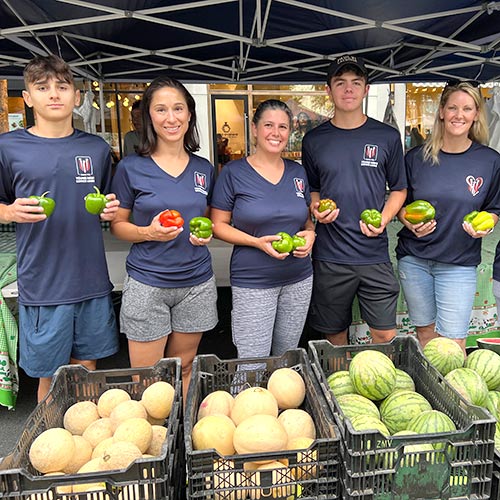Food as Medicine: Digestible Bites – February 2023
February’s Food as Medicine highlights continue, onward and upward…
The shorter version:
- Post-pandemic consumers focus on affordability and convenience over immune support
- Breaking down myths that Black food is not nutritious and reviving Black food as medicine
- FDA aims to tighten regulations for “healthy” and “organic” food labels
- Finding that food is more powerful than drugs to cure high cholesterol and heart diseases
The longer version:
Affordability Will Top Immunity As Leading Food Purchase Driver in 2023
After hunkering down during the pandemic while trying to stay healthy and boost our immunity, consumers are now more focused on convenience and affordability. A 2023 study of 757 registered dietitian nutritionists on “What’s Trending in Nutrition” revealed:
- For consumers, value and affordability beat immune support and comfort
- There is a rise in misleading marketing and nutrition misinformation due to social media
- Consumers will seek out these top ten superfoods:
- Fermented Foods (such as yogurt, kimchi, kombucha tea and pickled vegetables), seeds (such as chia and hemp), blueberries, avocados, nuts (including pistachios, almonds and walnuts), leafy greens (such as spinach), aquatic greens (such as algae, seaweed and sea moss), green tea, ancient grains, and non-dairy milks.
African Heritage Diet as Medicine: How Black Food Can Heal the Community
The author and founder of NATIVSOL Kitchen breaks down the misconception that traditional Black food is not nutritious. The article advocates for Black food as medicine showing how history and food are a source of empowerment to change the narrative regarding nutrition and health across the African diaspora.
The articles cites a 2020 study published in Digestive Diseases and Sciences about “African Americans who swapped diets for two weeks with rural Africans, ate a low-fat (20% of energy), high-fiber diet and experienced positive changes in their metabolism and gut microbiome and had a lowered risk for colon cancer. In contrast, Africans eating a Standard American diet, low in fiber and high in fat, experienced increased colon cancer polyps and inflammation.”
FDA Aims to ‘Improve Diet, Reduce Chronic Disease’ by Updating Healthy Claims on Food Labels
For the first time since 1994, the U.S. Food and Drug Administration (FDA) is updating the use of the term healthy on food labels. These changes attempt to align the agency’s definition of healthy with the latest nutrition science and federal dietary guidelines.
If companies want to use the healthy claim, the product must abide by specific thresholds set by the FDA of total and saturated fat, cholesterol, and sodium, and contain nutrients like Vitamin A, calcium, or iron. The new rules will regulate “healthy claims primarily according to food groups, as opposed to individual nutrients. Food products will need to contain a specific amount of food from at least one of six categories: fruits, vegetables, grains, dairy, proteins, and oils. The FDA also plans to continue limiting nutrients including sodium, saturated fat, and added sugars, with baseline amounts varying by food group. Additionally, the agency would remove minimum micronutrient requirements, preventing the labeling of unhealthy foods as healthy simply for containing a large amount of a single nutrient like calcium.”
New USDA rule boosts “organic” food oversight, targets fraud
The USDA strengthens the enforcement of the definitions of organic, which must rely on “natural substances and physical, mechanical or biologically based farming methods to the fullest extent possible.” The rule requires USDA’s National Organic Program certification for all imported organic food, increases certifications of more businesses in the supply chain and boosts authority for inspections, record-keeping, traceability and fraud prevention practices.
Food vs Pharmaceuticals: New Study Highlights Power of Nutrition Over Pills for Improving Heart Health
Dr. Elizabeth Klodas, a practicing cardiologist, says that in her 14 years of medicine-related training, not even an hour was spent on nutrition. Sadly, this is not new news to us. But now, Klodas is aiming to change the paradigm in the US from treating high cholesterol and heart disease with drugs to the ancient wisdom of using food as medicine. “Physicians aren’t just there to provide drugs; they’re meant to help folks,” she says.
Thanks,
Food Rescue US – Fairfield County Food as Medicine Liaison
If you enjoyed this post, you might also like last month’s Food As Medicine post.




